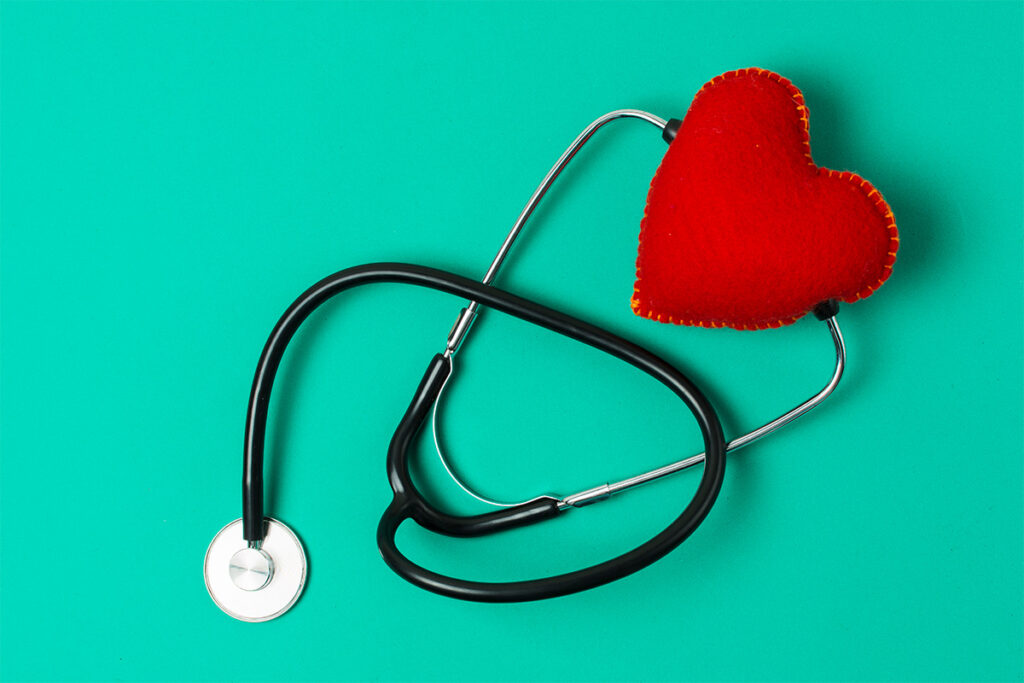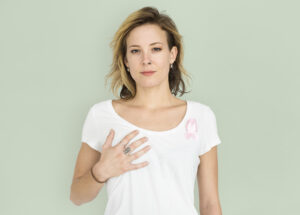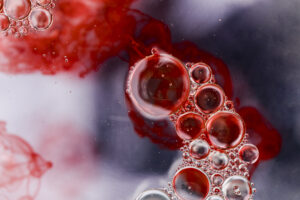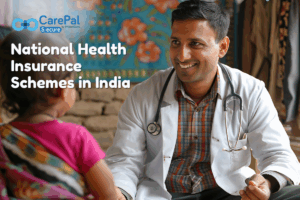How to prevent Breast Cancer:
What Hina Khan & Angelina Jolie
can teach you in 2024
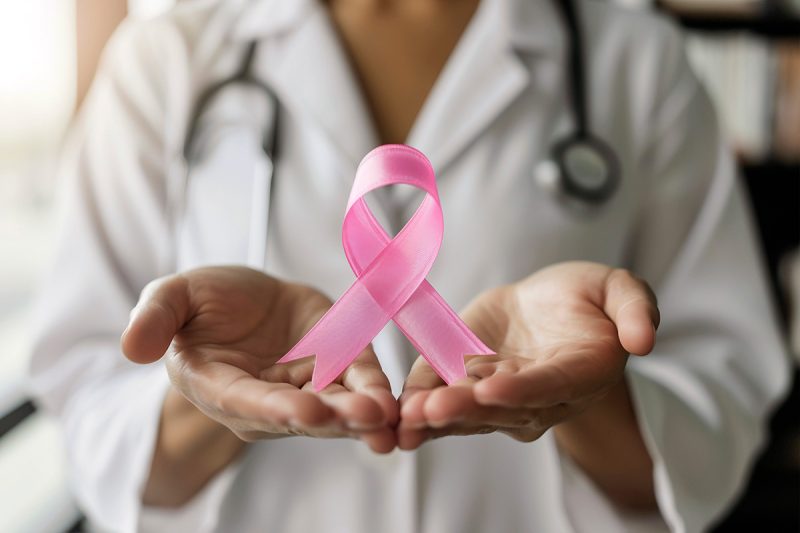
Breast Cancer is one of the most common cancers for women in India. Around 25% of all cancer cases and 15% of cancer related deaths among women in India are due to breast cancer. For those seeking detailed information, this comprehensive breast cancer guide covers everything from basic understanding to prevention and treatment options. Not only is breast cancer one of the most common cancers, but it is also one of the fastest-growing forms. 1 in 8 women in India is likely to have breast cancer at some point in her life. However, to prevent breast cancer it is important for you to first understand the risk factors, which factors you can eliminate, which factors you can only mitigate and which are the ones that you can’t do anything about.
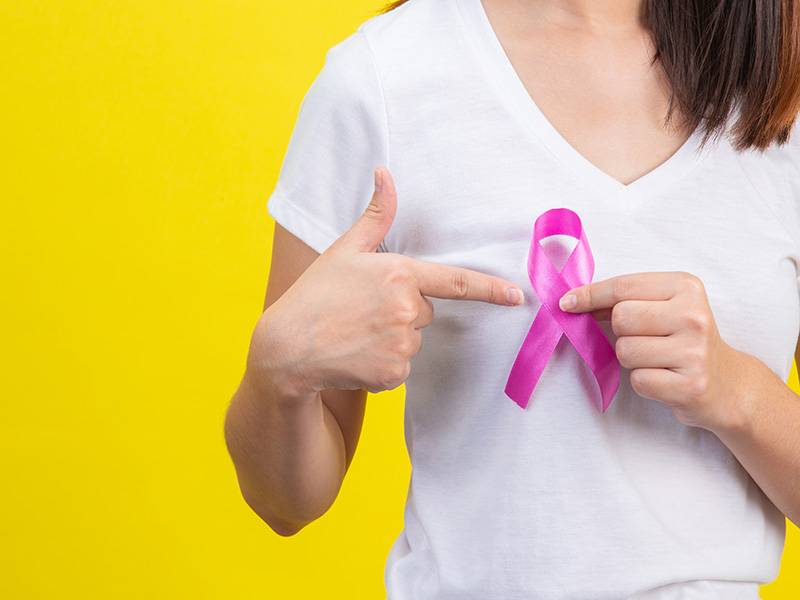
How To Prevent Breast Cancer Breast Cancer: Risk factors & mitigants
Like most cancers, breast cancer also has genetic, lifestyle and environmental risk factors. Your prevention strategy has to work on reducing all the three factors
i. Genetic Risk factors & mitigants: Being born a woman, having a family history, being caucasian and getting old are risk factors that are out of your control. However, it has been identified that mutations in BRCA1 and BRCA2 are strong indicators that a woman is likely to develop breast cancer at some point in her life. Most people assume that if a disease springs from genetic factors, then there is very little that you can do about it. That might be true for factors like getting old or gender, but some important factors can be acted upon. The risk posed by the mutation in BRCA1 and BRCA2 can be detected by a test which can be done in most cities in India for around Rs 15000.
Mega Hollywood star Angelina Jolie made news worldwide in 2013, when at the age of 37 she got BRCA1 & 2 testing done and was diagnosed with having severe risk of breast cancer. She took preventive steps (preventive mastectomy) as well as shared her experience to create awareness about breast cancer and also help women make informed choices about their health.
ii. Lifestyle Risk Factors and mitigants: Not being physically active, smoking and drinking are perennial risk factors. As is being obese, particularly weight gain after menopause. Some studies suggest that for women who were obese before menopause, the risk of breast cancer might be lower. The other risk is related to delayed or absent motherhood. Not having children, not breastfeeding or excessive use of birth control seems to heighten the risk. Another known risk factor is using breast implants.
Of all the risk factors, lifestyle factors are perhaps the most effective and easily controllable. Simple changes incorporating more physical activity, watching one’s weight, eating right, and moderating if not stopping alcohol consumption are the most obvious. However, in the context of breast cancer, one factor which has no clear recommendation is motherhood. Some studies indicate that women having a full-term pregnancy and giving birth before the age of 30 have a lower chance of contracting breast cancer. Given the unpredictable nature of cancer risk factors, comprehensive critical illness protection planning becomes essential for women of all ages. than those who give birth after the age of 30. Research also suggests that women giving their first birth beyond the age of 35 are at a slightly higher risk of getting breast cancer as compared to those who don’t give birth at all.
iii. Environmental risk factors: Environmental pollution, high PM 2.5, low exposure to sunlight etc are also related to a higher risk of cancer. Countering environmental factors is not easy but basic steps like wearing masks, being physically active in sunlight, and properly cleaning fruits and vegetables before consumption are steps that can be taken.
Beating cancer is a game of odds. Every little advantage that you can accrue in preventive strategies is worth it. But there is no denying the fact that despite all the precautions one takes, cancer can still occur. And this is where the next strategy of being proactive with screenings can help in a big way.
Role of diagnostics and the magic of early detection
People who watch Indian television shows might know about the breast cancer treatment that popular television star Hina Khan is undergoing. She was diagnosed with cancer when it was at stage 3. Hina is a brave individual who has not only been public about her condition and treatment but has also inspired many by refusing to let her medical condition get the better of her psychologically. However, this also highlights the importance of early detection.
Breast cancer detected at an early stage, when the cancerous cells have not spread, not only makes the treatment easier and less expensive, it’s much less painful and effective. Early detection breast cancer cases have a five-year survival rate of 99% while those detected at stage 4 onwards have a five-year survival rate of 22%. Regardless of detection stage, understanding insurance coverage for cancer treatment ensures financial preparedness throughout the treatment and recovery journey. India is a country with one of the lowest breast cancer screening rates in the world. While in the western world, 70% of breast cancers are detected at stage 1, In India 60% of detections happen at stage 3 and above. Beyond these statistics, there are many surprising cancer statistics and lesser-known facts that can help women understand their risk better.
So over and above taking precautions and reducing your risk factors for cancer, the biggest lever you have as an individual is to have annual health check-ups and screenings, Between professional screenings, women should practice regular home screening methods to detect any changes in breast tissue early. particularly after the age of 35. Some of the common tests for breast cancer screening are:i. Mammography: An x-ray of the breasts to detect any lump formation.
ii. Sonography: an ultrasound of the breast.
iii. Magnetic Resonance Imaging (MRI) of breasts.
iv. Blood Tests like CBC to determine if the organs are functioning correctly.
v. Biopsy test which removes tissue or fluid from the breast for medical examination.
- Conclusion
Secure is designed to provide you and your family with comprehensive, accessible, and affordable healthcare solutions. Whether you’re an individual, a family, or a senior citizen, there’s a plan designed to provide financial security and peace of mind.
Some key reasons why you should choose CarePal Secure are:
Extensive Coverage: Get access to a wide network of hospitals for cashless treatments, covering everything from regular health check-ups to major hospitalisations.
No Waiting Period for Essential Coverage: CarePal Secure offers immediate access to essential healthcare benefits so that yCarePal ou can receive critical medical treatment without long approval delays.
24/7 Medical Assistance & Claims Support: Our dedicated helpdesk is available round-the-clock to assist you with medical emergencies, claim processing, and consultation bookings.
Teleconsultations & Healthcare Discounts: Our seamless teleconsultation services allow you to access specialists across 18+ medical fields. Additionally, you can enjoy significant savings on medicines, diagnostic tests, and outpatient care, making quality healthcare more affordable.
Affordable Plans with Super Top-Up Options: Choose from a range of budget-friendly plans for individuals, families, and seniors. Our super top-up policy for seniors provides additional financial protection, covering larger medical expenses at a lower cost.
Tax Benefits Under Section 80D: The premiums paid toward CarePal Secure health insurance are tax-deductible, helping you save money while ensuring comprehensive coverage for yourself and your family.
With trusted partners nationwide, CarePal Secure ensures that quality healthcare is always within reach. So what are you waiting for? Join 80,000+ satisfied customers who trust CarePal Secure for their healthcare needs.
Get in touch with us to know the right plan for you.


